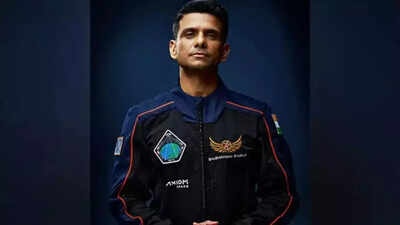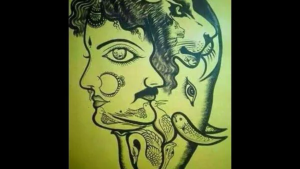Indian astronaut Shubhanshu Shukla, currently on board the International Space Station (ISS) as part of the Axiom-4 (Ax-4) mission, is scheduled to interact with students and scientists at ISRO on Friday, July 4th.

This unique event, facilitated by the ARISS (Amateur Radio on the International Space Station) program, aims to inspire interest in STEM education by connecting students with astronauts in orbit.
The interaction will occur via ham radio through a telebridge at the U R Rao Satellite Centre in Bengaluru. The scheduled time for the session is 3:47 PM IST (10:17 UTC). Communication will be relayed through the K6DUE ground station.
The ARISS program serves as a vital link between space exploration and education, enabling students worldwide to witness science in action beyond textbooks.
Ham radio, also known as amateur radio, is a licensed communication system utilizing radio frequencies for non-commercial purposes. It is a popular tool among enthusiasts and is often crucial during emergencies when standard communication lines are disrupted.
In space missions, ham radio provides a reliable and direct communication line between astronauts and students or amateur operators on Earth, adding a personal dimension to science education.
During his 14-day expedition on the ISS as part of the Axiom-4 mission, Shubhanshu Shukla is involved in several pioneering experiments, including:
This involves studying the potential of microalgae as a sustainable and nutrient-rich food source for astronauts. Microalgae also play a key role in oxygen recycling and waste management. Shukla is documenting the impact of microgravity on algae growth through high-resolution photographs, which could pave the way for closed-loop life-support systems essential for future missions to the Moon, Mars, and beyond.
This project utilizes virtual reality headsets to assess cognitive performance in microgravity. Astronauts engage in attention-based tasks while their brain activity is monitored using functional near-infrared spectroscopy (fNIRS). This data helps scientists understand the effects of space travel on mental acuity, motor function, and memory, which is crucial for astronauts performing critical tasks in stressful, confined environments during deep space exploration.
This research aims to integrate biometric data with AI-driven mission analytics to monitor the impact of space on cardiovascular health and balance systems. By utilizing real-time data analysis and predictive models, this research could revolutionize in-flight medical monitoring and potentially enable remote diagnostic devices for use in rural or emergency settings on Earth.
Older articles
 Former India Selector Blasts Fielding Lapses After Test Defeat; Urges Patience With Team
Former India Selector Blasts Fielding Lapses After Test Defeat; Urges Patience With Team
 Greg Chappell: Rishabh Pant is Revolutionizing Cricket with Unorthodox Style
Greg Chappell: Rishabh Pant is Revolutionizing Cricket with Unorthodox Style
 Optical Illusion Puzzle: Only 1% Can Find All Hidden Animals – Can You?
Optical Illusion Puzzle: Only 1% Can Find All Hidden Animals – Can You?
 Indian Pacer Harshit Rana Released from Squad Ahead of Second England Test Amidst Series Pressure
Indian Pacer Harshit Rana Released from Squad Ahead of Second England Test Amidst Series Pressure
 Vegetarian Powerhouses: 20 Plant-Based Protein Sources That Outperform Eggs
Vegetarian Powerhouses: 20 Plant-Based Protein Sources That Outperform Eggs
 Asia Cup 2025: ACC Reportedly Targets September Start Amid Rising Hopes, Aims for Schedule Release Next Month
Asia Cup 2025: ACC Reportedly Targets September Start Amid Rising Hopes, Aims for Schedule Release Next Month
 Chess Prodigy: Nine-Year-Old Indian Player Secures Draw Against Magnus Carlsen
Chess Prodigy: Nine-Year-Old Indian Player Secures Draw Against Magnus Carlsen
 Prasidh Krishna Eyes Bowling Improvement: Focus on Economy Rate and Length Control During England Tour
Prasidh Krishna Eyes Bowling Improvement: Focus on Economy Rate and Length Control During England Tour
 Mirabai Chanu: Olympic Medalist Reveals Relentless Focus on Training, Weight Control Even During Family Time
Mirabai Chanu: Olympic Medalist Reveals Relentless Focus on Training, Weight Control Even During Family Time
 Smith Eyes Grenada Test Return After Injury Layoff
Smith Eyes Grenada Test Return After Injury Layoff